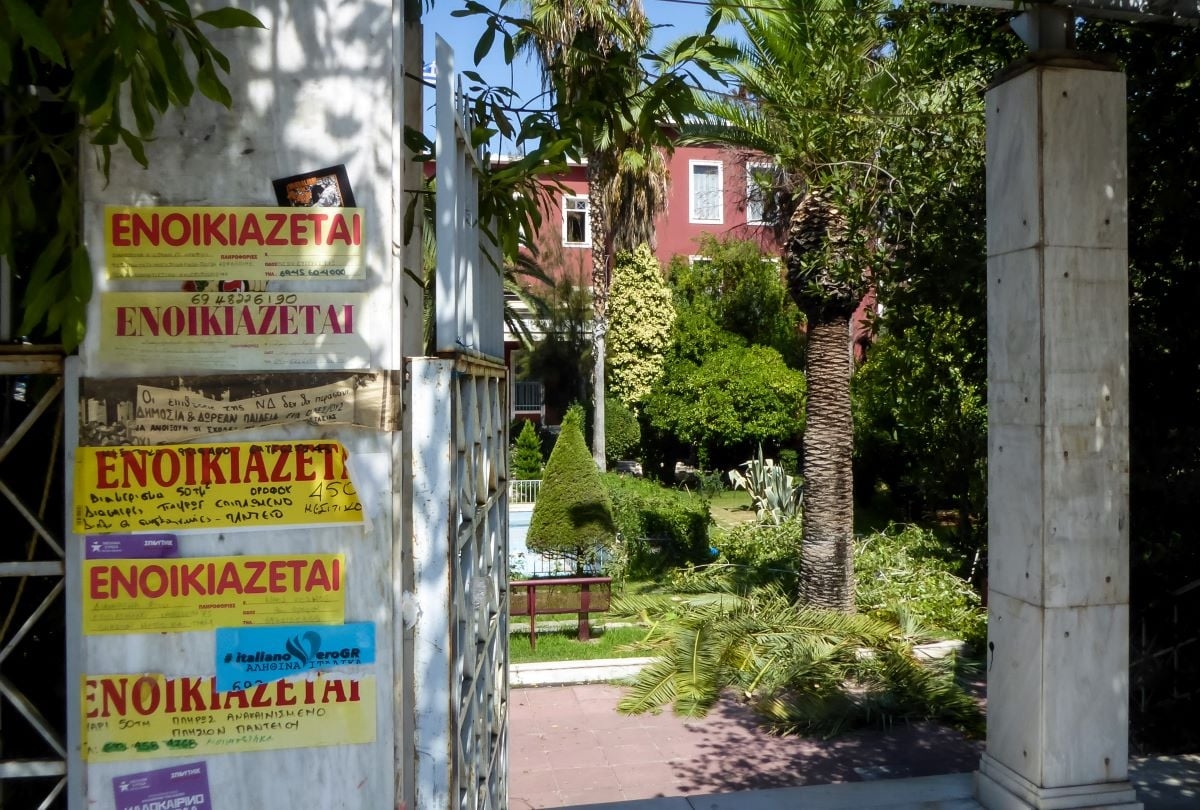Rents in 42 of the country’s 50 districts increased in the first quarter of 2023.
Even in the “cheap” areas of Piraeus, such as Keratsini, Kaminia, Drapetsona, etc., or in the “backyards” of Athens (Botanikos, Sepolia), a family of four who do not have their own housing and resort to rent have to significantly reduce their budget. Average asking rent for a 90 sq.m. reaches 630-650 euros. That is 34-35% of their family’s annual income, if they are in the majority, with a salary of up to 800 euros.
Characteristically, in 42 of the 50 regions of the country for which data are published on the spitogatos website, there was an increase in rent in the first quarter of 2023 compared to the same period in 2021. In 10 of them, growth exceeds 10%. In Kilkis, Corinth, Messinia and Chania, rent growth exceeds 15%. Of these four districts, only in Kilkis the rent “falls” below 5 euros per sq.m.
A related study by diaNEOsis notes that in Greece now has the highest cost of housing in relation to income.
Greek homeless households, estimated at 27%, pay the highest percentage of their income among countries according to Eurostat. EU – about 37%.
The problem is even more acute for the poorest households. According to the OECD, 20% of them pay 43% (on average) of their income in rent. But a reasonable question arises: “How did we end up with the most expensive housing in terms of income in Europe”? One explanation is a significant decline in citizens’ incomes. From 2009 to 2014, the country’s residents lost more than 40% of their disposable income.. However, in subsequent years and up to the present day, the replacement of losses is only a small percentage. Especially if you take into account the rise in food prices and inflation in general.
“At the same time, the number of tourists in cities and islands has increased. Landlords have found new uses for their property, such as short-term rentals, which in turn have affected prices and rents,” diaNEOSis reports.
But even before this happened, Greece was already a country without an established housing policy. In the storm of the crisis, everything that existed to help citizens “disappeared”: in 2012, without replacement OEK was abolished – the state body that led the largest housing programs in the country.
Unlike what is happening in Greece, social housing programs continue to develop in Europe. For example, in Austria, 1 out of 5 dwellings is social rental housing. In fact, 80% of Austrian households have access to it.
At the same time, 14% of all housing in France is rented social housing, which reaches 5 million units of real estate. In Spain, 20,000 energy-efficient social housing units will be refurbished and made available through the Recovery Fund.







More Stories
Fruits and vegetables: imports up 50.2% in April
Greek products on their way to France
Reduced fees for POS transactions, limited bank fees